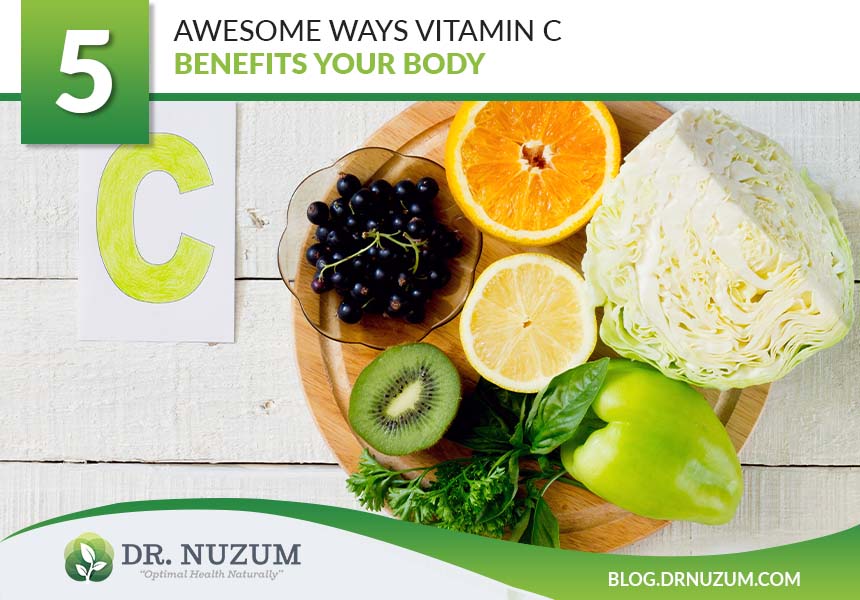Did you know that a lack of vitamin C can lead to an increase in the risk of some common health problems? It’s important because it plays roles such as boosting our immune system, helping with wound healing, and preventing diseases like cancer or heart disease. And while we might be able to make some ourselves (our bodies naturally contain enough), ensuring that there are adequate levels helps us stay healthy.
Vitamin C is an essential nutrient that can reduce your risk of chronic diseases and help you retain blood pressure. It also improves skin tone, boosts immunity, and makes for better sleep! In this article, we’ll cover what role vitamin C plays in helping maintain a healthy diet, along with some tips on how it might benefit those who do not get enough through their regular meals or dietary habits, giving them more reasons than ever before to take care of themselves by supplementing with foods or delicious fruits rich in vitamin C, like oranges (which include lots of vitamins, too).

1Protects Against Dementia
Although memory loss is inevitable as we get older, there are strategies to combat it. Take high potency multivitamin/mineral capsules that include folic acid, vitamin B6, and vitamin B12. All of these nutrients have been linked with a decreased risk of dementia. But be sure to add extra vitamin C, too. Research suggests that this powerful antioxidant can help protect the brain from age-related damage.
Vitamin E and C supplements were found to decrease the risk of dementia by a third in one research, according to another study. It’s critical to consume enough vitamins and minerals as you age, including vitamin C. Vitamin C is essential for maintaining optimum health as we get older. Vitamin C can be obtained through diet alone or nutritional supplements.

2Improves Your Dental Health
Vitamin C is essential for your teeth, but it’s also beneficial to your gums. Vitamin C keeps the connective tissues in your gums healthy and hard, ensuring that your teeth stay in place and preventing gum disease from developing. Furthermore, vitamin C supplements decreased tooth erosion in children.
Vitamin C is readily available in many foods, including citrus fruits, peppers, sweet potatoes, broccoli, berries, and kale. If you don’t get enough vitamin C in your diet, consider eating oranges, lemons, strawberries, kiwi fruit, and sweet peppers. It’s also present in many processed meals, like cereals or baby food.

3Helps Improve Your Skin Health
Vitamin C is a powerful antioxidant that helps protect your skin from sun damage. It also helps produce collagen, which is important for keeping your skin looking young and healthy. Vitamin C is also helpful in treating wrinkles, age spots, and other signs of aging.
According to a study, women who took vitamin C supplements had less wrinkle development on their skin than those who did not take the pills. Another research revealed that people who consumed vitamin C supplements had a decreased risk of developing skin cancer. Food and supplements are both good sources of vitamin C.

4Boosts Your Immunity
One of the most common reasons people take vitamin C supplements is to boost the immune system. Vitamin C also helps prevent cancer, reduces the number and severity of colds, and prevents cardiovascular disease by preventing plaque buildup in the arteries. Vitamin C is known as the immune system’s first line of defense against bacteria, viruses, and foreign substances that enter the body.
Vitamin C supplements are taken for a variety of reasons. It may aid in the maintenance and strengthening of your immune system, reducing the chance of catching a cold or another sickness. Vitamin C is vital to your immune system’s function. It aids in the prevention of colds and may even help you recover faster!

5Lowers Your Risk Of Heart Disease
When vitamin C is consumed in 500 mg doses, it seems to reduce the risk of heart disease. Individuals who consume meals high in vitamin C do not require supplements to achieve this effect. It appears that taking 500 mg of vitamin C daily may lower your risk of heart disease. However, if you don’t get enough vitamin C through diet, supplement with it.
Vitamin C protects against heart disease. It has been discovered in several studies to help lower LDL cholesterol and triglycerides levels in the blood by increasing the activity of our antioxidant defense system. This means that it removes harmful toxins and by-products that can damage our cells, including those in the heart, as they scavenge damaging poisons and by-products.

Vitamin C, also known as L-ascorbic acid, is a potent antioxidant that promotes the growth of collagen fibers in the skin’s tissues. These components preserve your youthfulness and vitality for longer periods of time with decreased joint discomfort or disease risks. Consider taking a vitamin C supplement every day if you want to improve your overall health.
First, we researched how vitamin C protects you from chronic illnesses and keeps your blood pressure in check. Next, we discussed the impact vitamin C has on your skin. Then, we covered how vitamin C improves your immune system. You now have a greater knowledge of the vital role that vitamin C plays in your diet. You may benefit from this information by supplementing with vitamin C.

